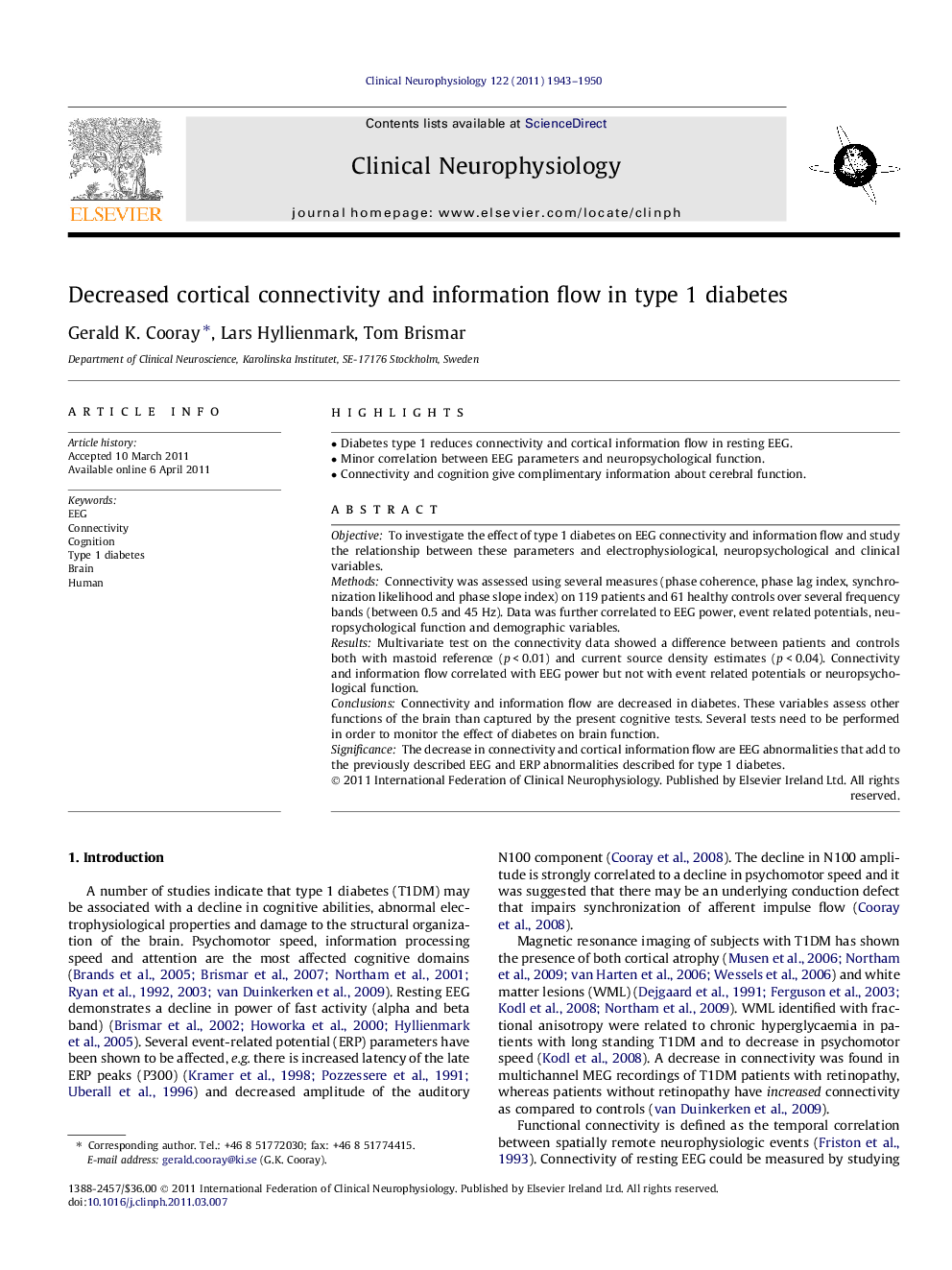| Article ID | Journal | Published Year | Pages | File Type |
|---|---|---|---|---|
| 3045713 | Clinical Neurophysiology | 2011 | 8 Pages |
ObjectiveTo investigate the effect of type 1 diabetes on EEG connectivity and information flow and study the relationship between these parameters and electrophysiological, neuropsychological and clinical variables.MethodsConnectivity was assessed using several measures (phase coherence, phase lag index, synchronization likelihood and phase slope index) on 119 patients and 61 healthy controls over several frequency bands (between 0.5 and 45 Hz). Data was further correlated to EEG power, event related potentials, neuropsychological function and demographic variables.ResultsMultivariate test on the connectivity data showed a difference between patients and controls both with mastoid reference (p < 0.01) and current source density estimates (p < 0.04). Connectivity and information flow correlated with EEG power but not with event related potentials or neuropsychological function.ConclusionsConnectivity and information flow are decreased in diabetes. These variables assess other functions of the brain than captured by the present cognitive tests. Several tests need to be performed in order to monitor the effect of diabetes on brain function.SignificanceThe decrease in connectivity and cortical information flow are EEG abnormalities that add to the previously described EEG and ERP abnormalities described for type 1 diabetes.
